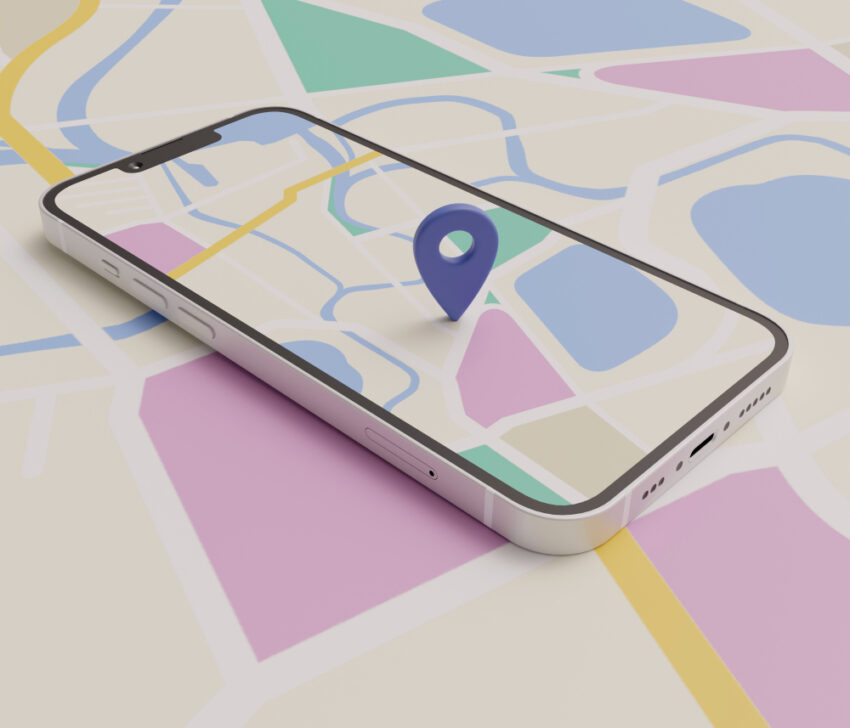Tracking someone’s location has become easier than ever with the advent of technology. One popular way of tracking someone’s whereabouts is by using Google Maps. However, you may find yourself in a situation where you need to track someone without them knowing.
In this article, I will explore the reasons why you might want to track someone on Google Maps discreetly, its legality, and various methods to accomplish this without raising suspicion.

Why would you want to track someone on Google Maps without them knowing?
There can be several reasons why you would want to track someone on Google Maps without their knowledge. One common situation is concerned parents who want to keep tabs on their children’s whereabouts to ensure their safety. By discreetly tracking their children’s location, parents can have peace of mind knowing they are safe. Another scenario is employers who need to track their employees’ movements for productivity and safety reasons. However, it’s important to note that tracking someone’s location without their consent should only be done in situations where it is legal and morally justified.
Is it legal to track someone on Google Maps without their knowledge?
The legality of tracking someone on Google Maps without their knowledge depends on the jurisdiction you are in. In some places, it is illegal to track someone’s location without their consent or a valid reason. It is crucial to familiarize yourself with the laws in your area before engaging in any tracking activities. In general, it is always advisable to obtain the person’s consent before tracking them, as this ensures transparency and respect for their privacy.
How to track someone on Google Maps without raising suspicion
Now that we have established the importance of legality and consent, let’s explore how you can track someone on Google Maps without raising suspicion. One method is by utilizing the “Location Sharing” feature within the Google Maps app. This feature allows you to share your location with others discreetly. By asking the person you want to track to share their location with you, you can gain access to their real-time movements without them knowing your intentions. Remember to respect the person’s privacy and act responsibly when using this feature.
Another method is by using a third-party GPS tracking app that integrates with Google Maps. These apps often provide additional features such as geofencing, which allows you to set up virtual boundaries and receive notifications when the person enters or exits those boundaries. These apps can be useful in situations where you need more control and advanced tracking capabilities. However, be cautious when using third-party apps, as they may not always be reliable or secure.
Using Google Maps features for discreet tracking
Google Maps offers several features that can be used for discreet tracking. One such feature is the “Timeline” feature, which automatically records your location history. If the person you want to track has enabled this feature, you can access their location history and track their movements without their knowledge. However, it’s important to note that this feature needs to be enabled by the user, so it may not always be available or accurate.
Another useful feature is the “Location History” within the Google Account settings. By accessing this feature, you can view and manage the location history of all the devices connected to the account. If the person you want to track uses a shared device or has their account connected to multiple devices, you can discreetly track their movements by accessing this feature.
Other methods of tracking someone without them knowing
Apart from Google Maps, there are other methods to track someone without their knowledge. One such method is using spyware or tracking apps that can be installed on the person’s device. These apps run in the background and provide real-time location updates to the person tracking. However, it’s important to note that using spyware or tracking apps without the person’s consent is highly unethical and may be illegal in many jurisdictions.

Another method is through social media platforms. Many social media apps track and display the user’s location by default. By following the person on social media and monitoring their posts, you can gain insights into their current location. However, this method is less reliable and may not provide real-time tracking information.
Privacy concerns and ethical considerations
While tracking someone’s location can be useful in certain situations, it raises significant privacy concerns and ethical considerations. It is essential to respect the privacy and autonomy of individuals and only track them with their consent or in legally justified circumstances. Tracking someone without their knowledge can infringe upon their rights and may lead to unintended consequences. It is crucial to evaluate the necessity and legality of tracking someone before engaging in such activities.
How to protect yourself from being tracked on Google Maps
In an age where tracking technology is prevalent, it is equally important to protect yourself from being tracked. Here are some tips to safeguard your privacy on Google Maps:
- Review your Google Account settings: Make sure you are aware of the location-sharing settings within your Google Account and adjust them according to your preferences.
- Disable location services: Turn off location services on your device when you don’t want to be tracked. This will prevent apps, including Google Maps, from accessing your location data.
- Be cautious with app permissions: When installing apps, review the permissions they request. Only grant location access to apps that genuinely require it.
- Regularly review and delete location history: Periodically check and delete your location history within your Google Account settings to ensure no unnecessary data is being stored.
Conclusion: Responsible use of tracking technology
Tracking someone on Google Maps without raising suspicion is a delicate matter that should be approached with caution and responsibility. It is crucial to consider the legal and ethical implications of tracking someone’s location without their knowledge. Always seek consent and ensure that your intentions are justified before engaging in any tracking activities.
Additionally, take steps to protect your own privacy and be mindful of the information you share online. By using tracking technology responsibly, we can strike a balance between safety and privacy in our digital world.
CTA: Security tips to block someone from tracking your cell phone and maps
